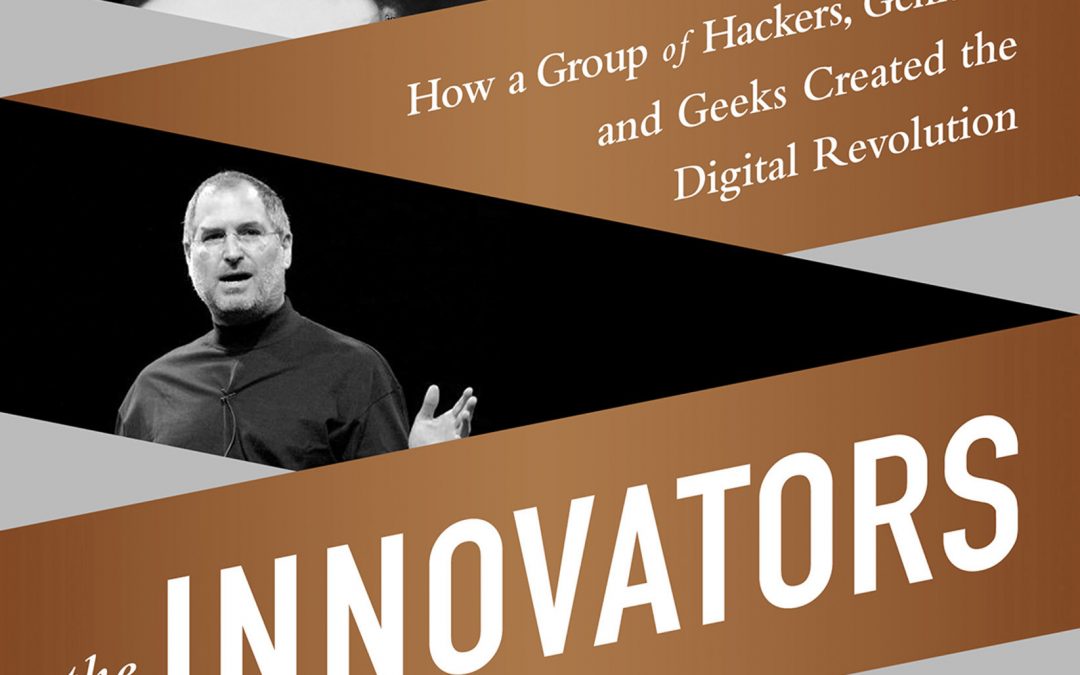Walter Isaacson’s latest book, The Innovators: How a Group of Hackers, Geniuses, and Geeks Created the Digital Revolution, led me to think about how we are creating the future of healthcare. Although the book is about how the computer revolution and the internet came about, it has a lot to say about how people innovate, create, and then make that innovation a reality. In its essence, the book is about creating and sustaining change. And I think that is in essence what Dr. Lindsey has been blogging about on this site.
Healthcare reform is not only about the innovations in practice and financing that will improve healthcare and achieve the Triple Aim, but it is also about how to make it work and make it sustainable. To paraphrase Isaacson, a vision without execution is merely a hallucination. One of the consistent themes in the book is that geniuses and visionaries almost always needed a partner who was good at making the ideas work: Jobs had Wozniak, Robert Noyce and Gordon Moore (Moore’s Law) at Intel had Andy Grove, etc.
The future is uncertain and complex, and nowhere is that more true than in trying to figure out what will happen to medicine in the next few years. For me, what makes sense and rings true in a volatile, uncertain, complex, and ambiguous (“VUCA”) world, comes from Alan Kay at Xerox PARC (mouse and GUI): “the best way to predict the future is to invent it.” I think Dr. Lindsay is saying the same thing: the folks who make medicine work in this new environment will own the future.
As I have traveled around, I see so many groups struggling with how to manage care while taking both risk and fee-for-service contracts. Some groups are trying to recreate what was done a decade or two ago. But American medicine today is not really about recreating Kaiser or Geisinger Health System or Cleveland Clinic or Atrius Health. Most newly integrated health systems are aggregations of independent practices, often aligned with hospitals, but not always. How these groups make the transition to value-based care will determine the future of medicine in the US.
I agree that the fee-for-service market will still be a large part of how we pay for health care in the US. It is not going away any time soon. But no matter the payment methodology, ultimately, healthcare is all about being patient-focused: giving patients the care they want and need, and giving maybe them a model of care they may not have known they wanted. As Isaacson concludes in his book, it is, in the end, all about the “product.” Jobs realized this, and he (along with his counterparts) created an entire economy based on things consumers never even knew they wanted (e.g. smart phones with apps). Isaacson says the most successful innovators were “product people.” You can’t advertise your way into the future and you cannot monopolize your way into the future. You have to create a “product” that makes sense for patients and for those who pay the bills: i.e. great access, great patient experience, and great quality at a great price.
I see so many great healthcare organizations trying to sell their experience to other systems – Geisinger, Thedacare, Virginia Mason. In the end, I think most of these efforts will fail because their systems worked for their culture and their structure. LEAN has failed at so many institutions, I believe, because it was seen as a product (the outcome) and not as a methodology for helping innovation. In the end success is about vision and execution.


